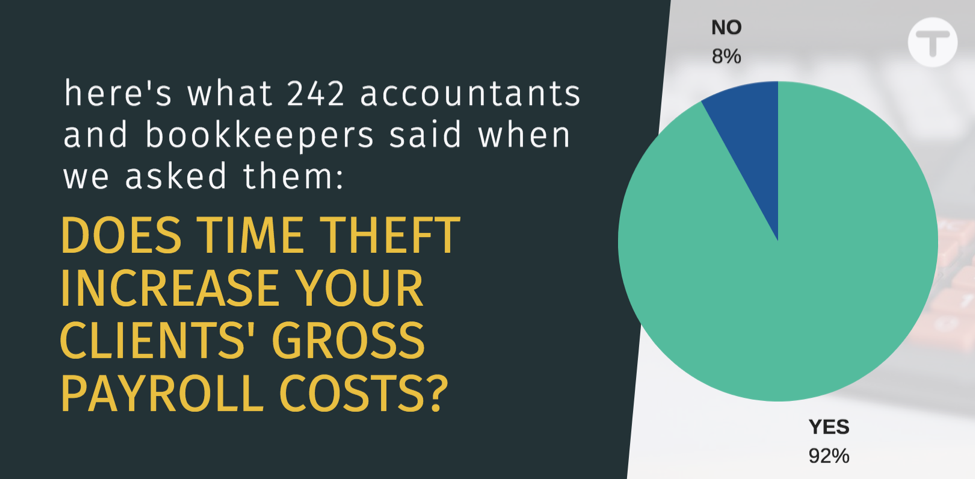Time theft isn’t an easy subject to discuss. By and large, we all seek to do the right thing – get to work on time, meet the deadlines we’re given and show up with a positive attitude. But, time theft (however unintentional) is one of those damaging acts that can fly under the radar. It’s rarely vindictive, yet it makes an impact on a company’s bottom line merely because it happens more often than employers think.
Time theft takes a few different forms:
- Employees or contractors who pad their timesheets, or even go so far as to submit timesheets for days they didn’t work at all.
- Employees who spend time at work on unapproved non-work tasks.
- Employees who punch in their friend or co-worker so it looks like that person is also at work (this is known as buddy punching).
- Employees who forget to fill out their timesheet until the end of the week and accidentally overestimate the time they worked.
- Employees who don’t clock out for unpaid breaks.
If this topic is new to you, you may be shocked to find out over half of U.S. employees admit to adding between 15 minutes to an hour to their timesheet each day. On its own, 15 minutes doesn’t seem like a lot, but added up over time, the sum total equals about $11 billion in unworked hours across the US.
This is a trend many bookkeepers are also noticing. A recent survey of 242 accountants and bookkeepers, conducted by QuickBooks® Time, found that 92 percent believe their clients have a time theft problem. They estimate the average cost of time theft to be 5 percent of their clients’ gross payroll costs.
Don't forget to save this link into your bookmarks and share it with your friends.
